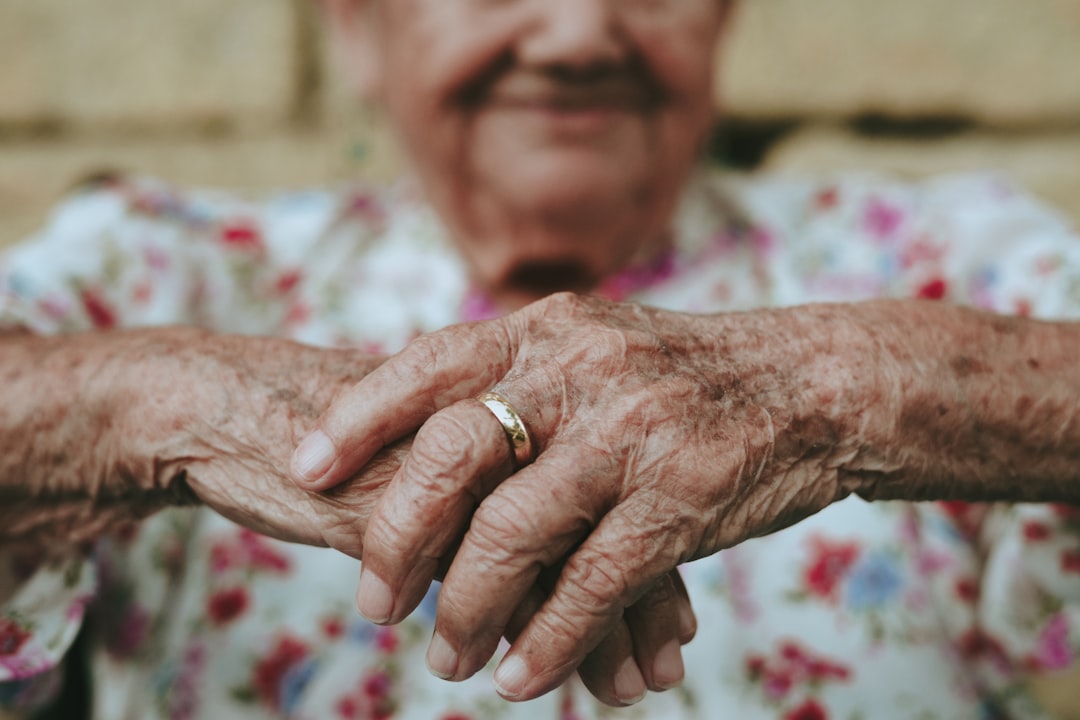Five ways to optimize your aging brain
Simple ways to reduce stress and improve brain function
A guest post by Dr. Suzanne Gazda
I recently visited my aunt and uncle in their assisted living facility. While I was there, I helped a woman in a wheelchair find her way back to her room. "I don’t even know where room 215 is," she cried, even though it was just four doors down the hall.
The experience struck me, as these so-called 'care centers' epitomize how we destroy our brains: through isolation, infinite loss, profound loneliness, day-to-day monotony, limited movement, a lack of connection with nature, unhealthy food, poor eating habits, and ultimately watching others die or lose their mental capacities.
I’ve been a neurologist for several decades, and what I observed at the facility prompted me to dive in and learn more about the aging brain. I found an interesting article that brought up some parallels to what I’m seeing in vaccine-injured patients as well.
Without getting too technical, the authors found that COVID infection itself, along with the associated stressors of the pandemic, such as isolation, loneliness, anxiety, and a loss of control, have a combined negative impact especially in vulnerable older people.
As I said in a recent lecture, spike protein finds an easy target in the 'vulnerable’ brain.
With age, our microglial cells — which are the first line of defense for our central nervous system — become primed and remained chronically activated. Autophagy, the process by which the body clears out dead and damaged cells, almost stops with advanced age.
Stress has a similar effect, no matter how old you are. The vaccine-injured have some of the highest stress responses and share many, if not all, of the neuroimmunological mechanisms of brain impairment with those elderly people I visited recently in assisted living.
The good news is, we can help them!
In the article I mentioned above, the authors discussed some ideas that FLCCC doctors already use and love — things like melatonin, Vitamin D3, flavonoids (especially Luteolin), and others.
But perhaps even more interestingly, they also discuss the importance of modulating the stress response, which triggers the release of cortisol and leads to high levels of inflammation, in turn impairing the body’s repair mechanisms, especially in its cognitive centers.
So, here’s my five-step strategy for modulating stress:
Spirituality. Research has shown that religious and spiritual beliefs can help us age successfully, have a higher tolerance for stress, and better cope with anxiety and depression. Meditation and prayer may also be critically important. A 2016 study followed a group of 64 healthy, non-meditating women who spent six days living at a resort. The subjects were randomized to either a meditation retreat or a relaxed, vacation-like environment. While all study participants reported greater vitality and decreased stress after one week, those who were immersed in meditation had a significant improvement even 10 months later. The meditators also had lower levels of Aβ40, a 40-amino-acid proteolytic product from the amyloid precursor protein, which implies the potential effects of meditation in reducing amyloid-like substances.
Music. Music, both listening to it and making it, positively influences the immune system during acute stress. Multiple studies have proven a positive effect of music on the immune system and on decreased cortisol levels. Many scientific studies have used a specific piece of music — Sonata in D Major for Two Pianos — so much so that the effect of music on the brain has been dubbed ‘The Mozart Effect’. But really any music you like listening to will have an impact. So strap on your headphones, set the volume to a healthy level, and get rocking!
Neuroplasticity. The brain has an amazing ability to adapt, reorganize, and change. Brain functions like learning, memory, and executive function tend to decline with age, however. But all is not lost. Inducing neuroplasticity can help with this age-related loss. I always say never go to bed without learning at least five new things. Read a book. Learn a new language or how to play an instrument. Explore new places either by actual travel or by reading and learning about them. Express your creativity by drawing, writing, dancing, or whatever else you like to do. Remember, it doesn’t matter if you’re any good – the point is just to do it! Practice makes perfect and makes for a healthier brain!
Hope. It may sound strange but having hope can be curative. A search for the word on PubMed returns over 90,000 results, with an impressive increase in research into so-called ‘hope therapy’ over the past three to four decades. At its most basic, having hope can help a person feel happier and less helpless. It can reduce stress and generally improve quality of life. What’s wrong with that?
Nature. Go outside and breathe deeply. Listen to the birds, say hello to the trees, and let the sun reach your skin. Being in nature, or even observing scenes of nature, can contribute to better well-being and reduce the risk of heart disease, obesity, diabetes, and mental distress.
When I was a child, my grandfather taught us a song called ‘Zivijio’, which he told us is a Czech word that means “to a long life.” So go out and read a book, take a walk, listen to music, and remember to not lose hope. Here’s to a long and healthy life.
BONUS! Here are five more stress-reducing ideas from my friend and colleague Dr. JP Saleeby: 1) movement, 2) stretching, 3) earthing, 4) daydreaming, 5) digital detoxing (taking a short holiday from electronic devices).





This is SUCH a timely article! We just moved my Aunt from a very upscale and lovely Assisted Living facility into a more, shall we say "down-to-earth" facility in a nearby town. This facility is run more like a group residential home (with CNA's and a nurse to dispense meds), everyone is free to come and go as they please outside, watching the Little Leaguers next door, smoking in the gazebo (and please, Commenters, do not proselytize about the harm that smoking causes, these people are old and this brings them great enjoyment), sitting on a myriad of benches and chairs, communal dining in a warm and friendly small dining room, weekly outings to a store or a restaurant, and maybe just playing cards with your neighboring roommates. Most people would not even consider this place for their parent because it doesn't have the outward trappings of nice decor - it's a simple house, with an addition in the rear for the shared bedrooms. But it's a COMMUNITY where the residents are treated like family by the owner and the staff and they all consider themselves family to each other. My Aunt has only been there 5 days and her anxiety and short term memory have improved tremendously! It's really remarkable.
I am 76. A year ago I set a goal to live to be 100. My granddaughter is 1.5 YO and I want to see her finish college. Got the idea from Peter Atilla (Peter Attia (www.peterattiamd.com) I am lucky to be in excellent health and condition. 5 days/wk gym, resistance work and some cardio. I limit carbs to 100 g per day (inflammation, fat), use diet and protein powder to maintain muscle (sarcopenia avoidance), many sup's but esp NMN, resveratrol (per David Sinclair), teach two classes at local comm. college (keeps me reading, associating w younger crowd), no TV/soc media to speak of, avoid older people :) and seek out younger; work on balance using bosu ball; grip strength, leg strength exercises. finally, highly suggest reading stoic philosophy (related to "hope" in main article). finally, I spent 5-6 years learning about and improving sleep--maybe the most important. btw-best dietary source of melatonin is pistachio nuts. use only olive oil, blue berries once per day.